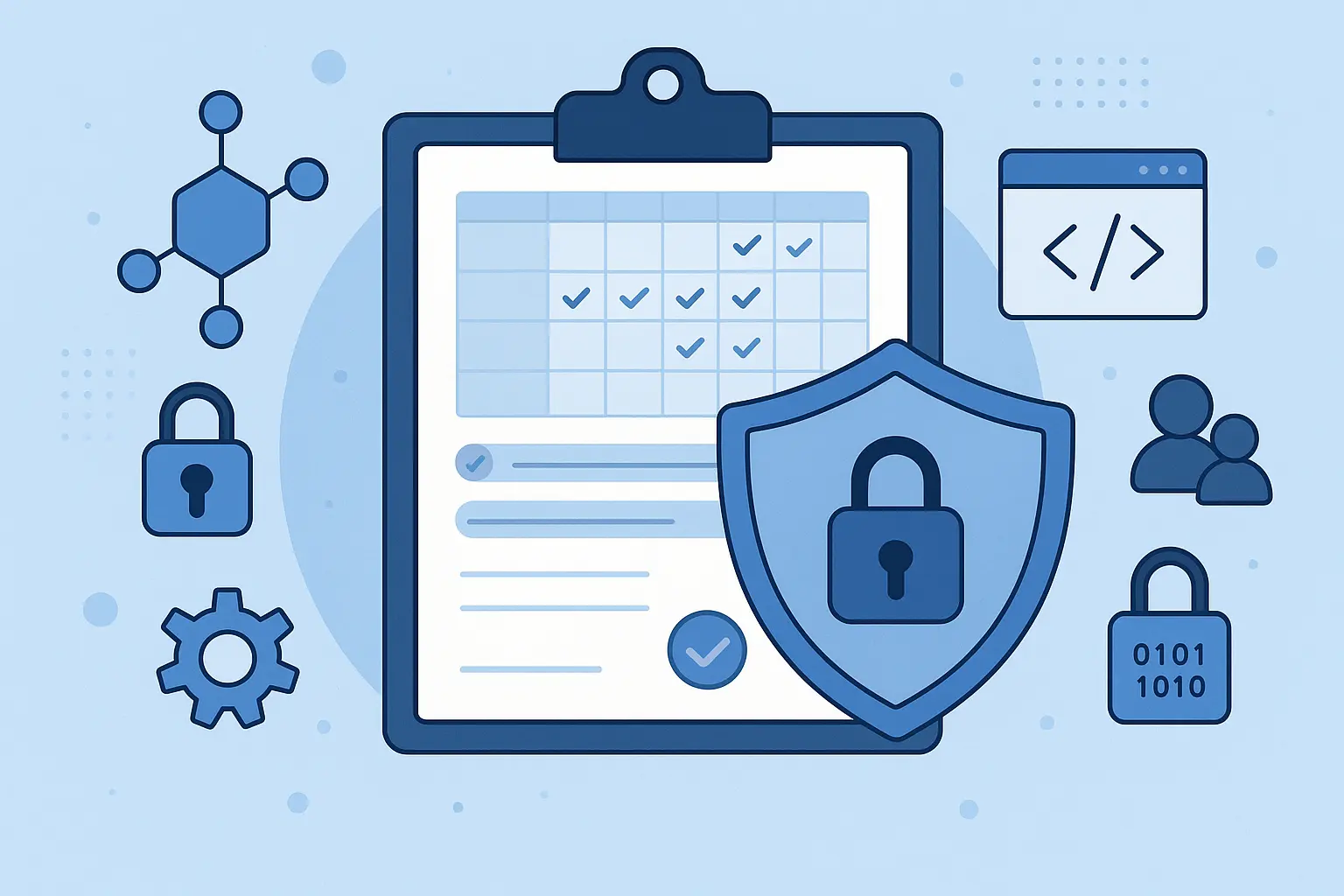IN THIS POST
Effective booking management is crucial not only for maintaining organizational processes, but also for promoting green practices. By utilizing advanced technologies, companies can significantly minimize waste, eliminate unnecessary travel, and enhance resource efficiency. This strategy further supports the global shift towards sustainability. As businesses aim to lessen their carbon footprint, recognizing the significant role of these tools becomes increasingly essential.
The Ecological Consequences of Conventional Scheduling Practices
Traditional methods typically rely on paper systems and face-to-face appointments. They also require frequent commuting, leading to increased fuel dependency. Transitioning towards green strategies calls for rethinking these outdated methods. Even minor adjustments can result in substantial environmental advantages.
Carbon Footprint
Using paper in appointment books and reminder cards results in significant deforestation and resource depletion. Production demands trees, water, energy, and chemicals, ultimately resulting in a larger emissions profile than digital options. The requirement for physical storage and disposal amplifies this impact. It directly underscores the importance of adopting modern solutions for everyday business practices.
Indirect Costs from Inefficiency
Inept bookings can result in higher energy consumption and resource waste. For example, poorly organized meetings might leave office spaces heated and lit while empty or cause employees to travel unnecessarily due to insufficient coordination. These can incur financial costs for the business and impose extensive biotic damage. Companies can significantly reduce these issues by adopting smart, automated solutions to optimize reservations.
Technology and Sustainable Scheduling
Adopting modern tools is fundamental to boost eco-friendly practices, particularly in booking methods. Digital solutions significantly cut paper use, enhance communication, and bolster operational efficiency. These also go beyond merely substituting outdated systems. They quickly establish a more dynamic and responsive approach to managing both time and resources.
Digital Tools for Smart Scheduling
Modern solutions vary from essential online calendars to sophisticated software that integrates with other digital business systems. These tools enable smooth appointment bookings, updates, and cancellations, significantly reducing the reliance on physical documentation. Additionally, they provide real-time updates and reminders through electronic channels, helping lower the emissions profile associated with traditional postal mail.
Benefits of Cloud-Based Platforms
By hosting data and applications on remote servers, scheduling systems negate the necessity for physical servers within a company. This quickly offers energy-efficient technology and scaling benefits. Accessibility from any location minimizes employee travel and commuting needs. This further eradicates fuel dependency, decreasing the release of greenhouse gas emissions.
These platforms also frequently receive updates that enhance efficiency and security without requiring physical alterations or interventions. This aligns with green business practices by prolonging existing hardware’s lifespan and curbing electronic waste production.
Reducing Carbon Footprint Through Remote Appointments
Digital bookings have become essential for businesses striving to minimize their ecological impact. Transitioning from in-person to online meetings allows companies to reduce fuel consumption linked with travel. This shift not only helps align with global sustainability objectives, but is also a practical way for contemporary organizations to boost connectivity.
The Role of Virtual Meetings in Reducing Travel
Online appointments eliminate the necessity for transportation by enabling participants from different locations to connect via the Internet. Leveraging video conferencing and other digital meeting technologies also allows businesses to carry out daily operations without incurring added costs.
This specifically includes those associated with paperwork, office supplies, electricity and other amenities. Virtual bookings can boost productivity by eliminating the time that is often wasted during commute. This quickly directs focus towards more productive tasks, further optimizing business processes.
Enhancing Energy Efficiency with Smart Scheduling
Advanced booking software utilizes intelligent algorithms. These optimize resource timing and allocation to minimize fuel consumption. By synchronizing schedules with usage patterns, businesses can significantly lower overall costs and foster a more eco-friendly operational model.
Automated Systems and Optimization
Automated booking tools aim to optimize the use of building utilities like lighting, heating, and air conditioning. For instance, smart solutions can synchronize HVAC operations with meeting times or ensure lights are on only when rooms are occupied. This customized management approach minimizes waste and considerably lowers billing costs. It showcases how advanced software can actively support a company’s environmental initiatives.
Impact on Office Energy Consumption
Intelligent booking tools significantly influence utilization by closely matching power use with actual needs. This means avoiding waste in underutilized spaces. For example, strategically scheduling meeting rooms can consolidate demand and allow building sections to be powered down when unnecessary. This approach not only reduces operational costs, but further allows businesses to boost ROI.
Waste Reduction via Paperless Practices
Adopting cloud-based operations is crucial for businesses that wish to minimize tree cutting. By utilizing modern tools, companies can remove the reliance on physical documents in everyday activities. This ranges from internal communications to client interactions. This transformation not only helps align with sustainability goals, but also simplifies corporate processes. Automation further increases efficiency and reduces errors.
Achieving a Paperless Office Through Digital Tools
Transitioning to a paper-free workplace is easier with virtual tools. These platforms aid document sharing and storage, boosting real-time collaboration. The addition of digital signatures further removes the requirement for exchanging physical contracts. Online appointment systems and customer relationship management software can now handle complex tasks that once demanded extensive record-keeping. Embracing these technologies not only prevents landfills, but also quickly bolsters flexibility.
Environmental and Economic Benefits of Reduced Paper Use
Cutting down on physical documentation quickly reduces deforestation. It also minimizes the waste of power and water that is used in the production process. From a financial perspective, companies can save money by reducing expenses related to buying, managing, and disposing of paper products. Additionally, this strategy can minimize storage space requirements and lower the risk of losing critical files. These benefits collectively promote a green business model that nurtures ecological balance and economic well-being.
Optimizing Resource Allocation and Use
Companies can significantly reduce waste and enhance efficiency by optimizing asset distribution and timing. This requires careful scheduling of human resources and wise management of physical assets like meeting rooms, equipment, and other facilities.
Efficient Utilization of Physical Resources
By employing advanced booking systems, organizations can accurately plan conference rooms, workstations, and equipment to ensure they are utilized effectively and only when needed. This prevents reserved spaces from going unused or hardware sitting idle. It ultimately helps conserve power while minimizing wear and tear. Additionally, these solutions can be linked with facility management software to streamline operations even further.
Minimizing Idle Time and Underutilization
Automated systems ensure both personnel and physical resources are utilized only when necessary. For example, these tools can synchronize employee schedules with peak demand periods, preventing excess staffing. This not only helps save resources during slow times and shortages, but also optimizes busy hours. Additionally, this software can plan maintenance during off-hours to avoid operational disruptions. Businesses can quickly sidestep inefficiencies and added expenses by aligning supply availability with actual demand.
Getting Started with Green Scheduling in Your Business
By embracing eco-conscious booking approaches, companies can reduce carbon emissions, minimize waste, and enhance asset utilization. Below are the preliminary steps to incorporate these practices into your business structure:
Evaluating Existing Practices
Start by thoroughly evaluating your current booking methods. Pinpoint areas for enhancement, including reducing paper usage, minimizing unnecessary travel, and optimizing the use of physical resources. Involve feedback from all organizational levels to understand existing procedures and potential areas for improvement.
Selecting the Appropriate Digital Tools
Opt for solutions that provide cloud-based operations, real-time updates, and mobile compatibility. Additionally, selecting platforms that easily integrate with existing systems like your CRM or ERP can ensure a smooth transition. This can also minimize the learning curve for employees.
Employee Training and Assistance
After selecting your digital tools, arrange coaching sessions for all workers. Comprehensive instruction ensures that everyone can utilize the new software effectively and understands their advantages to the environment and the business. Continued support and refresher courses can help promptly resolve issues. These can also help inform everyone about new features or best practices.
Tracking and Modifying
Once the new scheduling practices are implemented, their effectiveness should be continuously assessed. Track physical documentation usage, energy savings, and resource utilization to measure success. Conduct regular reviews to identify areas for improvement and ensure the business meets its green objectives. Potential adjustments could involve refining asset distribution, updating software systems, or minimizing paper dependence.
Promoting Eco-Friendly Initiatives
Endorsing a commitment to green practices fosters employee pride and motivation. It also quickly boosts your company’s reputation as a responsible business. Highlight your achievements through press releases, social media platforms, and your brand’s website. This can encourage others and help establish your organization as a leader.
Measuring the Impact of Green Scheduling Initiatives
Precise monitoring and adaptation based on performance data are essential for effectively implementing sustainable booking software. Below we examine the various techniques businesses can utilize to maximize the impact of their efforts:
Utilizing Cutting-Edge Software
Various advanced applications are now available to assist businesses in monitoring sustainability metrics like power usage, paper reduction, and carbon emissions. These platforms provide features like real-time monitoring, enabling companies to observe the impact of alterations in their scheduling practices instantly.
The best part is that they also offer historical data analysis to identify long-term trends and potential areas for enhancement. Forecasting capabilities based on current data further help improve strategic decision-making related to resource allocation and scheduling.
Leveraging IoT for Effective Resource Management
The Internet of Things is essential for improving efficiency. Devices like smart meters and automated HVAC systems can adapt in real time to actual usage. This significantly cuts electrical consumption when rooms or equipment are idle. By incorporating modern technology into their scheduling systems, companies can also reduce operational costs and boost profitability.
Gaining Insights from Employee Feedback
Worker input is crucial for evaluating how well new booking practices are being received and implemented. By using digital tools like surveys and mobile apps, companies can gather direct evaluations from their staff. Similar to marketing insights, this can help channel a clearer view of how changes impact daily operations. Feedback can also help pinpoint challenges and deficiencies. It can quickly ensure new methods align more closely with employee needs. A streamlined approach can further boost engagement and productivity over time.
Comprehensive Analysis through Unified Data Platforms
To fully leverage sustainable booking tools, it is crucial to amalgamate information from multiple sources. Centralized solutions can gather data from metric software, IoT devices, and employee feedback to offer a holistic view of a company’s environmental impact. These systems can also streamline analysis and decision-making processes, enabling businesses to refine their practices consistently.
Expanding the Benefits of Green Scheduling: Economic, Workplace, and Global Insights
The Impact of Employee Well-being on Productivity
Sustainable booking practices help foster a healthier work environment. They quickly minimize stressors like loud equipment and enhance air quality through reduced commuting emissions. Research indicates that businesses dedicated to sustainability experience boosted employee satisfaction. When workers recognize that their company prioritizes their well-being and the planet, they are more likely to feel valued and motivated.
Laws and Regulations Compliance
With environmental regulations tightening, embracing modern booking methods helps promote a proactive approach and prevents fines. By minimizing paper waste and reducing emissions, companies are more likely to meet governmental standards. This means they may easily qualify for incentives such as tax reductions or credits.
Perception of Clients and Stakeholders
Prioritizing eco-consciousness can significantly boost brand reputation. More than ever, consumers and investors are seeking to partner with businesses dedicated to green practices. By adopting digital booking solutions, companies not only enhance their operational efficiency, but also draw in greater revenue. This is specifically from those who appreciate responsibility and are likely to stick by.
Worldwide Trends and Comparisons
By studying how various regions or industries apply green strategies, businesses can gain insights into global trends. This can also help uncover new methods adaptable to current operations. A streamlined approach further makes it easier to stand out and obtain a competitive edge.
Emerging Future Technologies and Trends
AI has the capability to precisely predict peak resource demands, greatly improving efficiency. By investigating these technological advancements, businesses can stay updated on sustainability innovations. This can further motivate them to incorporate similar tools into their operations for better performance.
Endnote
Technology’s role in sustainability is set to grow, presenting fresh opportunities for businesses to innovate and succeed in an environmentally conscious market. By adopting modern tools and practices, companies can quickly pave the way to maximum profitability. Endorsement can further attract conscious consumers who are increasingly focused on playing their part to help save our planet.

Save your team time and money with Bookafy!
Using online appointment scheduling software, you can automate booking, reminders, syncing to calendars, fetching video meeting URLs, and much more. Try Bookafy free today!
Recommended Articles

From Side Hustle to Full-Time: How ESL Tutors Scale Their Income with Smart Tools?
BOOKAFY BLOG From Side Hustle to Full-Time: How ESL Tutors Scale Their Income with Smart Tools? IN THIS POST Do you remember working at your typical 9-5 job? You might

6 Online Identity Verification Methods for Booking Platforms
BOOKAFY BLOG 6 Online Identity Verification Methods for Booking Platforms IN THIS POST Many people have either grown tired of or just don’t like making bookings and reservations via phone

Why Transparency and Education Are the New Growth Engines in eCommerce Online Wellness Markets
BOOKAFY BLOG Why Transparency and Education Are the New Growth Engines in eCommerce Online Wellness Markets IN THIS POST The online wellness market is undergoing a significant transformation. Once dominated

9 API Security Best Practices Every Booking Platform Needs
BOOKAFY BLOG 9 API Security Best Practices Every Booking Platform Needs IN THIS POST Your organization is like a finely tuned machine where systems work together in harmony to keep

Why Remote Teams Secretly Appreciate Timesheet Software Like Workstatus
BOOKAFY BLOG Why Remote Teams Secretly Appreciate Timesheet Software Like Workstatus IN THIS POST Remote work has transformed how businesses are operated. Different cities; or even nations, are collaborating on

All About Optimizing Your Booking Page for Search Engines
BOOKAFY BLOG All About Optimizing Your Booking Page for Search Engines IN THIS POST Have a booking page, but not getting as many customers as you expected? That could be

